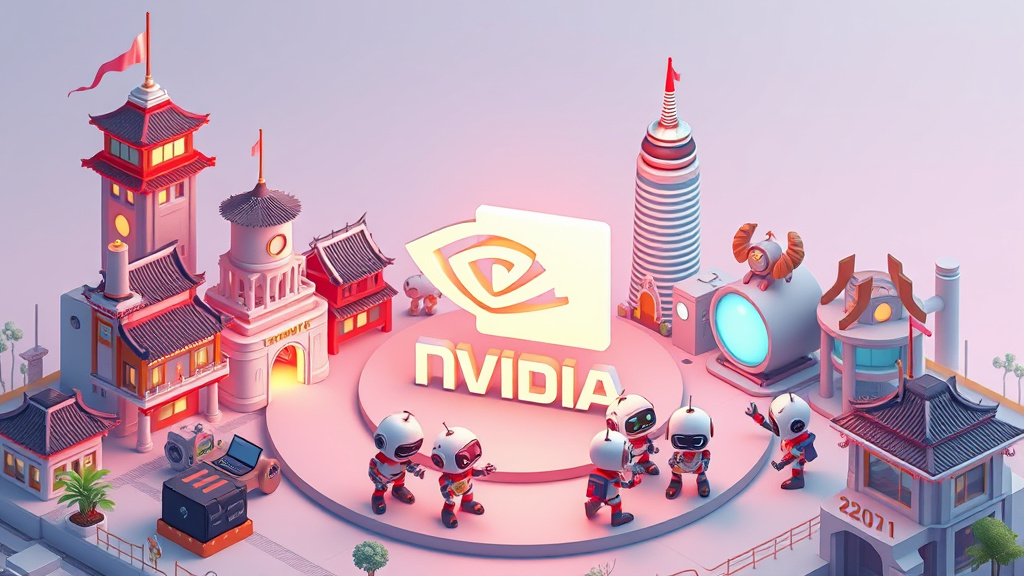The world of artificial intelligence is rapidly evolving, with new developments and advancements emerging every day. From AI-powered health care to AI-driven technological innovations, the potential applications of this technology are vast and varied. In recent news, several key stories have highlighted the growing importance of AI in various fields, including medicine, technology, and international relations.
Nvidia H20 Chip Shortage
China's H3C has warned of a potential shortage of Nvidia's H20 chips, citing depleting inventory and surging demand. The H20 chip is the most advanced AI processor legally available in China under US export controls. The shortage could pose obstacles for China's artificial intelligence ambitions, as companies like Tencent, Alibaba, and ByteDance rely heavily on these chips. H3C plans to distribute the limited supply of H20 chips based on profit margins, prioritizing stable, long-term customers.
Chinese AI Innovation
Chinese AI innovation is narrowing the technology gap with the US, with companies like DeepSeek leading the charge. DeepSeek's low-cost, open-source large language model has been shown to rival or surpass OpenAI's ChatGPT-4, despite being developed at a fraction of the cost. The company's achievements demonstrate how Chinese AI innovation has flourished despite restricted access to the latest silicon, focusing instead on algorithmic efficiency and novel approaches to model architecture. DeepSeek's emergence has challenged assumptions about the effectiveness of technology restrictions and has significant implications for the global AI landscape.
AI Safety Cooperation
The question of whether China and the US need to work together on AI safety has been debated at the Boao Forum. Experts argue that the two countries could learn from each other in developing safety protocols, but this would require the US to reimagine its rivalry-based mindset. The US government's obstruction of China from international safety networks and discussions on AI technology has been deemed a 'very wrong decision' by a prominent Chinese AI expert. Cooperation on AI safety is crucial, as the technology has the potential to empower both countries and accommodate their respective interests.
Nvidia's AI Market Expansion
Nvidia is looking to strengthen its position in the AI market by acquiring a company founded just two years ago in a deal worth several hundred million. This move is expected to increase Nvidia's presence in the AI server rental market, further solidifying its position as a leader in the industry. The acquisition is a strategic move to expand Nvidia's offerings and improve its competitiveness in the rapidly evolving AI landscape.
Nvidia's New AI Tools
Nvidia has released new tools that make running AI on personal computers a breeze. The company's NIM microservices allow people with RTX hardware to easily install AI models on their machines, enabling tasks such as text, image, and code generation. The goal is to make things as easy as possible, and the advantage of running models locally is that it saves money in the long run. Nvidia's new tools have the potential to democratize access to AI capabilities, making it more accessible to a wider range of users.
Potential Ban on Nvidia's H20 AI GPU
Nvidia's H20 AI accelerator might be banned from being sold in China due to new energy efficiency rules being considered by Beijing. The rules aim to reduce the influence of Nvidia's chips on domestic markets and force companies to choose in-house options. Nvidia is expected to take a significant revenue hit if the ban is implemented, as China accounts for a substantial portion of its AI sales. The company is already responding to the potential ban, arranging a meeting with the relevant authorities to discuss compliance with the new energy rules.
AI in Medical Care
Artificial intelligence is being increasingly used in medical care, with applications in diagnosis, treatment, and patient management. Predictive AI can analyze patient data to create care plans, while generative AI can summarize vast amounts of information in conversational ways. Studies have shown that AI can assist in cancer detection, improve diagnosis, and direct treatment. However, there are concerns about the use of AI in health care, including privacy and the potential for misleading or inaccurate responses.
Key Takeaways
- The world of artificial intelligence is rapidly evolving, with new developments and advancements emerging every day.
- Chinese AI innovation is narrowing the technology gap with the US, with companies like DeepSeek leading the charge.
- Cooperation on AI safety is crucial, as the technology has the potential to empower both countries and accommodate their respective interests.
- Nvidia is looking to strengthen its position in the AI market through strategic acquisitions and the release of new tools.
- Artificial intelligence is being increasingly used in medical care, with applications in diagnosis, treatment, and patient management.
- There are concerns about the use of AI in health care, including privacy and the potential for misleading or inaccurate responses.
Sources
- Exclusive: China's H3C warns of Nvidia AI chip shortage amid surging demand
- Chinese AI innovation narrows technology divide with the US
- Do China and the US need to work together on AI safety? Boao Forum debates
- NVIDIA could soon strengthen its position in the AI market even more
- Nvidia's New Tools Make Running AI on Your Computer a Breeze
- NVIDIA's H20 AI GPU Might Be Banned From Being Sold In China, But This Time, It Is Not The US's Fault
- Chinese Censorship: AI’s Role in Reinforcing State Control
- Doctor explains how artificial intelligence is already being deployed in medical care
- Artificial intelligence is already being used in your health care. What to know
- Artificial intelligence is already being used in your health care. What to know
